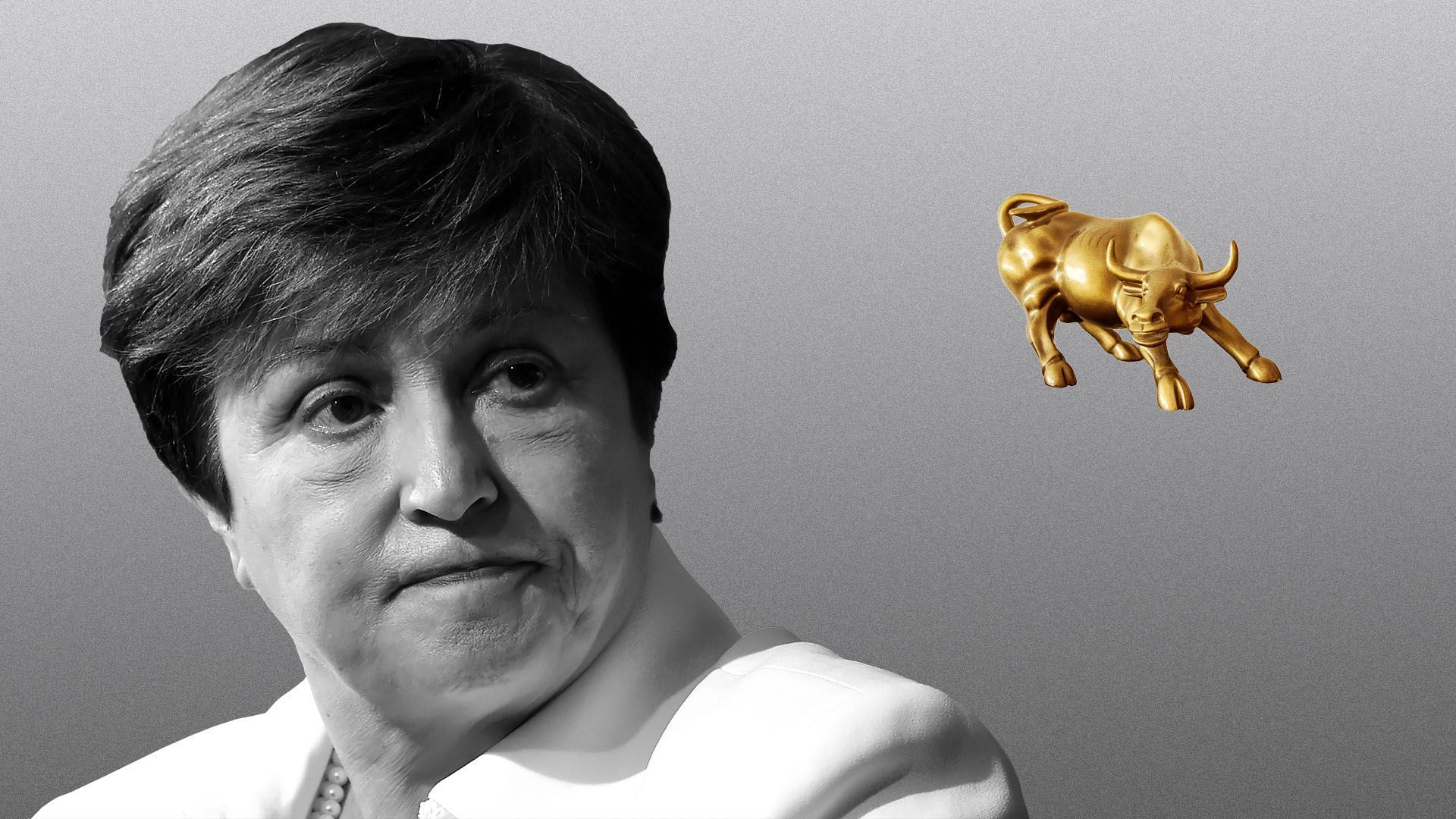
Stock indexes around the globe have been roaring higher since the start of the year, but expectations of improved economic growth and soothed international tensions may be getting a bit ahead of themselves.
Driving the news: The IMF released its latest World Economic Outlook Monday, showing yet another revision lower of its expectations for global growth in 2019 and 2020. IMF head Kristalina Georgieva also issued a number of warnings, suggesting that the worst may not have passed yet.
- "If I were to mark the words that come to my mind at the start of this decade it would be increased uncertainty," she said on Friday during a speech at the Peterson Institute for International Economics. "And we know that uncertainty is not a friend to investment, growth and jobs."
Why it matters: Economists and market watchers worry that if trade and the manufacturing sector do not improve soon, the health of the global economy could be at risk.
- While the IMF said "tentative signs that manufacturing activity and global trade are bottoming out" have helped boost market sentiment, they also noted that "few signs of turning points are yet visible in global macroeconomic data."
Yes, but: Georgieva told Axios following her speech that she understands why stock investors have gotten especially bullish lately, even in light of the IMF's worsening assessment of global growth.
- Sure, "90% of the world’s economy by GDP has slowed down simultaneously, but it doesn’t mean there is no growth," she said. "For the next year and year to follow we are a bit more optimistic."
Watch this space: Pessimism and worry were the big themes during last year's impressive run for global equities, but that feeling reversed itself in the fourth quarter of 2019 and a number of metrics are starting to show that traders now have become overly exuberant.
- Ned Davis Research warned on Friday that its sentiment index had reached “excessive optimism” territory. Earlier this month its analysts released a note saying the S&P 500's profits-to-earnings ratio was "well above fair value."
- Renaissance Macro Research said its metrics show bullish sentiment has reached "the uncomfortable stage,” nearing levels last seen ahead of January 2018's "Volmageddon" selloff.
- CNN Business' Fear & Greed index has risen to 89, indicating “extreme greed.”
Georgieva also signaled some worry over the overly complex nature of financial markets, particularly in the U.S. and other industrial countries like Japan and Western Europe, in her remarks on Friday.
- "There is a point at which financial deepening is associated with exacerbated inequality and less inclusive growth," she said.
What it means: Deepening financial markets have long been considered beneficial for a country's growth and development, but Georgieva argued that research is beginning to show that there is a point at which financial depth becomes negative.
- "The more sophisticated your financial system is … the less accessible it would be for less sophisticated people and firms, and then inevitably it would mean some degree of exclusion."
The intrigue: The 2020 Edelman trust barometer, released Monday, shows data may be starting to show the stress from overly deep financial markets in industrial countries.
- Throughout the life of its survey, Edelman has found that the more economic growth a country has, the higher the trust in its institutions.
- While that connection has held up in developing countries in the Middle East and Asia, it is now decoupling in industrial countries with deep and complex financial markets.
What they're saying: "[N]ational income inequality is now the more important factor in institutional trust," CEO Richard Edelman said in a release accompanying the results.
- "Fears are stifling hope, as long-held assumptions about hard work leading to upward mobility are now invalid.”
The bottom line: Deutsche Bank investment strategist Parag Thatte points out, "Equity positioning, like the market itself, has run far ahead of current growth as investors price in a global growth rebound."







